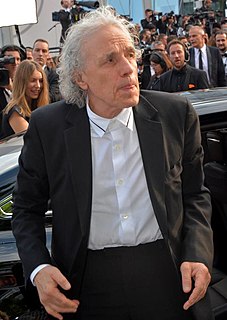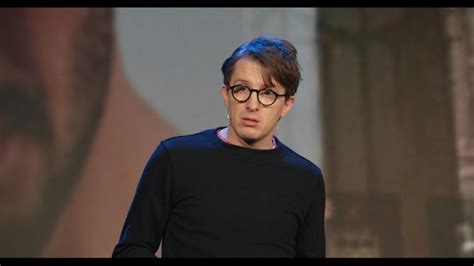A Quote by Columba Bush
My daughter, unfortunately, is ill, because drug addiction is an illness. She's been fighting it for years.
Related Quotes
Onstage it was always comfortable for me because that's where I felt at home. Offstage it was a different situation. I was still shy offstage and unfortunately, my shyness and my inability to communicate and really have great conversations or be part of the gang - in inverted commas - led me to the drug addiction, which, you know, blighted my life for 16 years because I thought by doing that it would make me join in.
Once and for all, people must understand that addiction is a disease. It’s critical if we’re going to effectively prevent and treat addiction. Accepting that addiction is an illness will transform our approach to public policy, research, insurance, and criminality; it will change how we feel about addicts, and how they feel about themselves. There’s another essential reason why we must understand that addiction is an illness and not just bad behavior: We punish bad behavior. We treat illness.
[T]he truth is that drug addicts have a disease. It only takes a short time in the streets to realize that out-of-control addiction is a medical problem, not a form of recreational or criminal behavior. And the more society treats drug addiction as a crime, the more money drug dealers will make "relieving" the suffering of the addicts.
Having been hit by drug addiction, knowing how many are hit by it and what a big problem it is in our neighborhoods and our culture, I feel a responsibility to do something. I can see what's wrong with the system - that we have to recognize mental illness as we do cancer or broken bones - and how we need to make it better.
Depression is about anger, it's about anxiety, it's about character and heredity. But it is also about something that is in its way quite unique. It is the illness of identity, it is the illness of those who do not know where they fit, who lose faith in the myths they have so painstakingly created for themselves. It is a plague - especially if you add in its various forms of expression, like alcoholism, anorexia, bulimia, drug addiction, compulsive behavior of one kind or another. They're all the same things: attempts to avoid disappearance, or nothingness, or chaos.
The opposite of addiction is human connection. And I think that has massive implications for the war on drugs. The treatment of drug addicts almost everywhere in the world is much closer to Tent City than it is to anything in Portugal. Our laws are built around the belief that drug addicts need to be punished to stop them. But if pain and trauma and isolation cause addiction, then inflicting more pain and trauma and isolation is not going to solve that addiction. It's actually going to deepen it.
There's traditionally been two different ways of seeing addiction. Either it's a sin and you're a horrible bad person and you are just choosing to be hedonist or it's a chronic progressive disease. And while I certainly believe addiction is a medical problem that should be dealt with by the health system, the way we've conceptualized addiction as a disease is not actually accurate, and it has unfortunately become stigmatizing and it's also created a lot of hopelessness in a lot of people.
It [Moonlight movie] deals with drug addiction, drug dealing, and single parenthood, but they are three dimensional characters. You understand where they are from and what they are trying to do with their lives. It is not a stereotype that has been pasted onto somebody. These are stories that come from Barry's [ Jenkins] and Tarell's [Alvin McCraney] mothers.


































